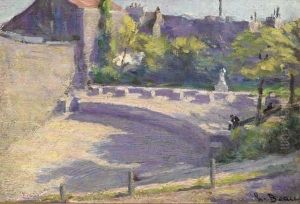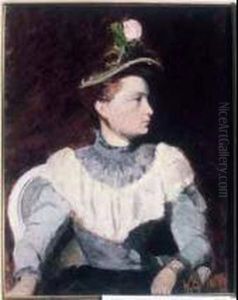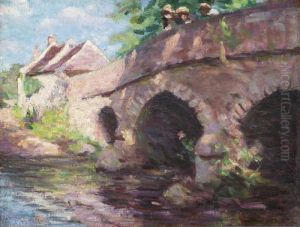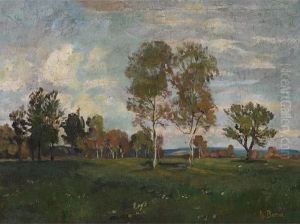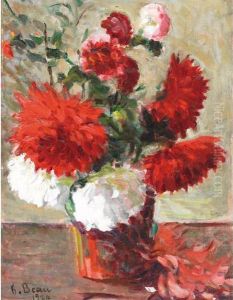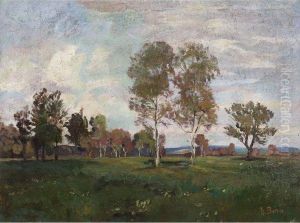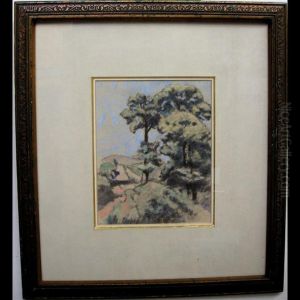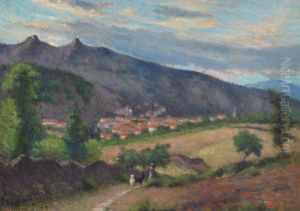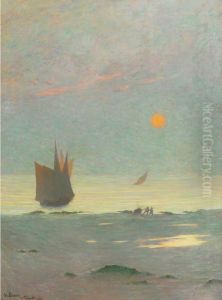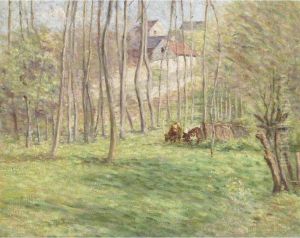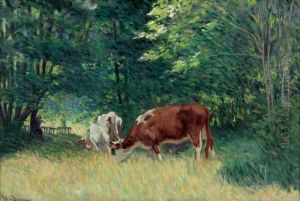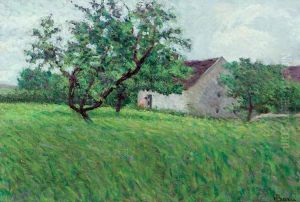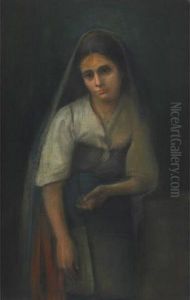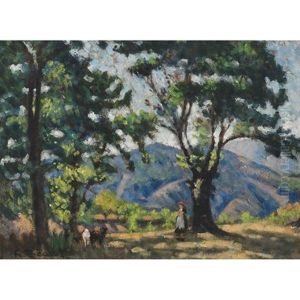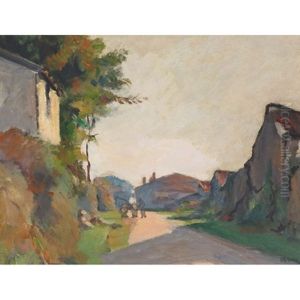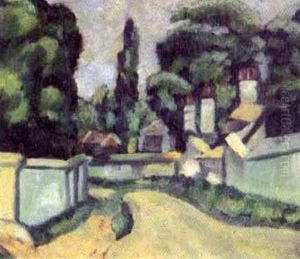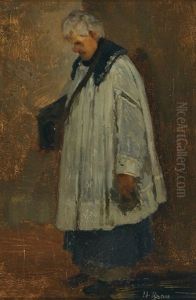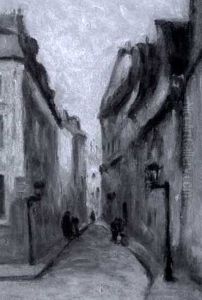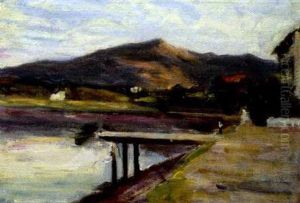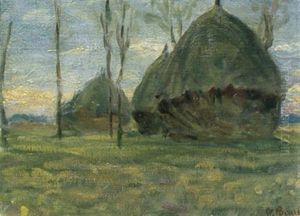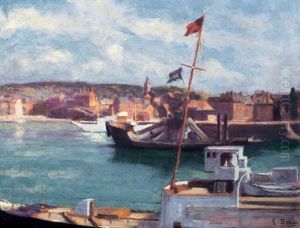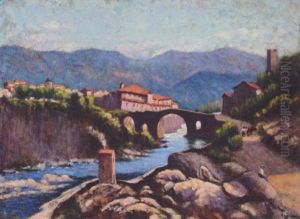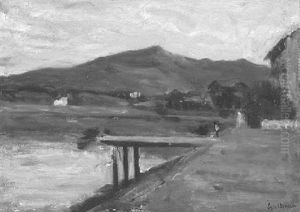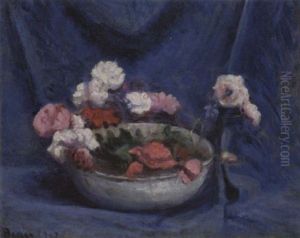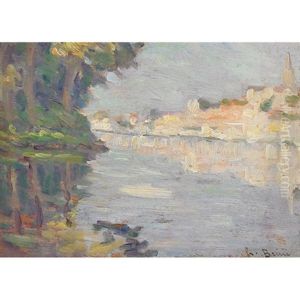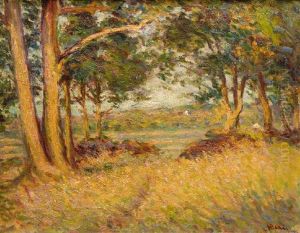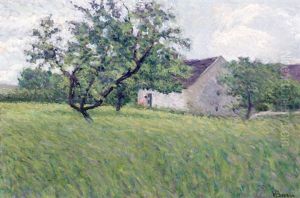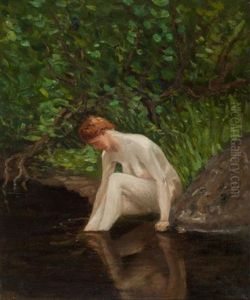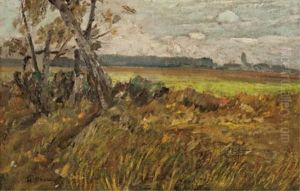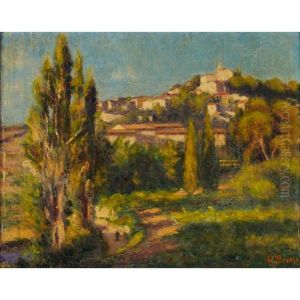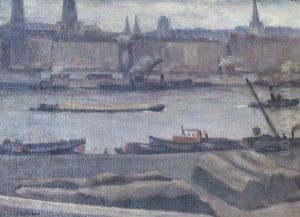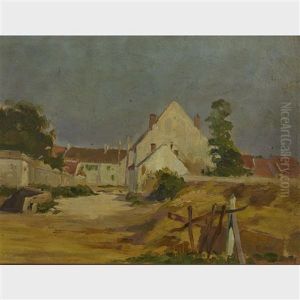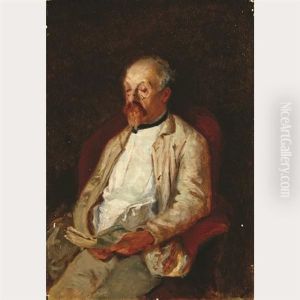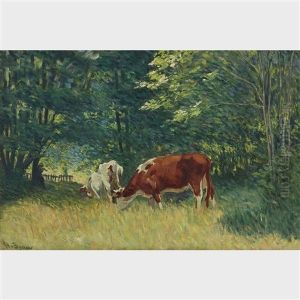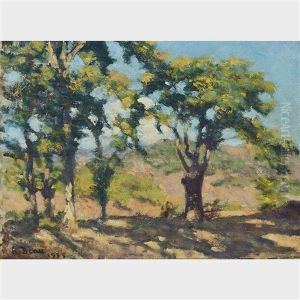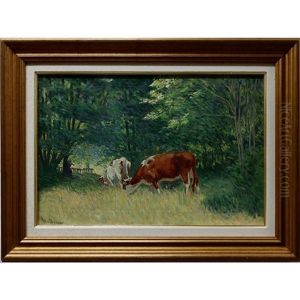Henri Beau Paintings
Henri Beau was a Canadian artist known for his landscape paintings and his contribution to the art scene in Canada during the late 19th and early 20th centuries. Born on December 27, 1863, in Montreal, Quebec, Beau was part of a generation of artists who were pivotal in establishing a distinct Canadian artistic identity. He began his artistic training at the Council of Arts and Manufactures in Montreal before moving to Paris to further his education. In Paris, Beau was influenced by the Impressionist movement, which is evident in his use of light and color.
During his time in Europe, Beau traveled extensively, drawing inspiration from the varied landscapes and artistic traditions of the continent. Despite the strong influence of European art, Beau's work remained deeply rooted in the Canadian landscape. His paintings often depicted the rugged beauty of the Canadian wilderness, reflecting a sense of national pride and a deep connection to his homeland.
Upon returning to Canada, Henri Beau became an active member of the art community, participating in exhibitions and contributing to the development of art societies. One of his notable contributions was his involvement in the founding of the Canadian Art Club, which aimed to promote Canadian art and artists at a time when the country's art scene was still emerging.
Beau's work was recognized and appreciated during his lifetime, and he exhibited his paintings in Canada and abroad. His landscapes, characterized by vibrant colors and dynamic compositions, captured the essence of the Canadian spirit and landscape in a way that resonated with both the public and critics.
Henri Beau passed away on August 15, 1949, leaving behind a legacy as one of Canada's esteemed landscape painters. His work continues to be celebrated for its contribution to the development of Canadian art and for its portrayal of Canada's natural beauty. Today, his paintings can be found in various art galleries and collections across Canada, serving as a reminder of his artistic talent and his dedication to capturing the spirit of his homeland.
